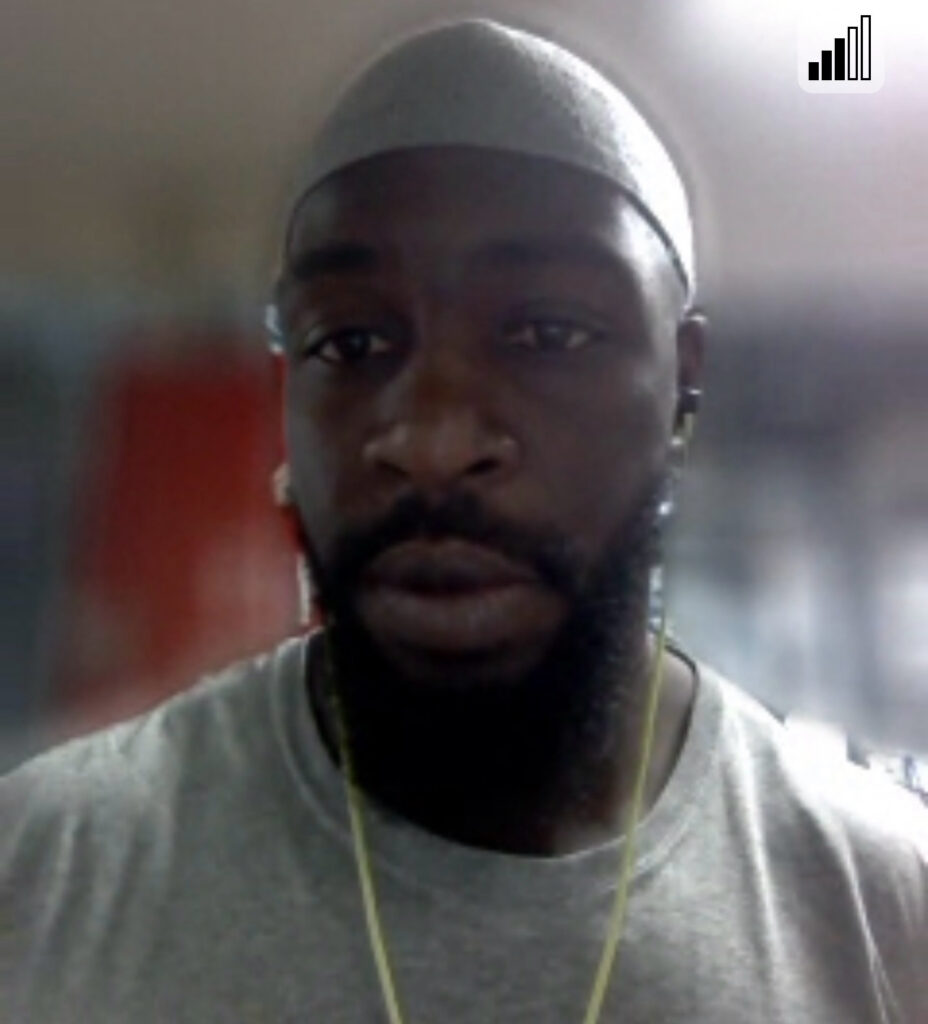We are all open books. However, it is only with a deep internal reckoning or a deeply imaginative consideration of the world and our place in it, that we begin to approach what type of book we are. Are we a book of fiction? Are we an autobiography or a biography? Are we a fantasy; a love story; a horror story; a redemption story; or all of them wrapped in one? Write out what you think and see. Through writing we can refine our deepest thoughts. Write them and read them, and do it again and again. “Read – for thy Sustainer is the Most Glorious who has taught (man) the use of the pen; taught man what he did not know”, as stated in surah 96:3-5 of the Qur’an. At most, on the surface we are only vague and mostly inconsistent summaries putting on our best presentation of who we are. It becomes Orwellian when the human being no longer feels, thinks, or writes. Orwell gave readers the totalitarian strategy in his book Nineteen Eighty-Four. His main character Winston commits a crime by starting to journal. What is the big deal? All he wrote was “Down with Big Brother.” Of course, “Big Brother” stood for the government. However, “Whether he went on with the diary, or whether he did not go on with it, made no difference. The Thought Police would get him just the same.”
The first ability man was given was speech. We know from biblical and qur’anic sources that Adam taught the angels the names of things. To have speech, is to have conceptual thought and these are inherent qualities of man. In order for someone to name a thing, they must understand it. When Adam named the bird, the description he gave fit perfectly and could be translated into any language. In other words, it made sense. With this understanding of the world and the things in it, man-built monuments, buildings, cities, and institutions. If things in this world operated without man having an understanding of it, we are nothing but cogs in the machine. We are Mary Shelley’s Frankenstein and his creation taking revenge on him. This is precisely why not being able to express oneself can become scary. Cogs in the machine don’t “Rage against the Machine”, instead the machines and institutions we create have power over us. In this world, we are mindless male and female humanoids, not man and woman reaching the heights of self-actualization. We would be cattle that only hear the hooting and hollering of a shepherd, following his or her dictates while not understanding a thing. It is one thing to live in a society where you constantly have to stop yourself on instinct from thinking a bad thought, it is another one all together to live in a society where the government considers a thinking person a criminal. Without seeing things for what they are with a proper description, there is no understanding. With no understanding there are no written blueprints to guide us through life; only confusion, and repression. Furthermore, without understanding there is no written expression and without writing we would not have a constitution. There would be no Bill of Rights. There would be no “Pursuit of happiness” and “All men created equal” being put into text. These ideals we consider to be “self-evident” would have only existed inside of the minds of a few madmen without any authority to back them. If someone truly believed in the words they speak or is a person of conviction, they would write down their thoughts because they know if they didn’t, their thoughts would be lost in space and time.
Joan Didion, a writer of novels, memoirs, and essays, wrote about the importance of keeping a notebook. She wrote an article that was published in a travel magazine called the Holiday, (1966) titled “On Keeping a Notebook”. She said she didn’t write for an “accurate factual record” but to “stay in touch” with herself. She questioned certain entries, or why they were important at the time or were they even true. Nevertheless, she said they gave her the ability to recall certain memories and moods. Didion said we “are well advised to keep on nodding terms with the people we used to be whether we find them attractive company or not, otherwise they turn up unannounced and surprise us…” She wrote about keeping a notebook as if it were a growing child that marks his or her height on the inside of a door seal. Each time the child grows they have reached a new milestone. This form of writing can give the honest truth about who a person is during the time of their writing.
Anne Dillard’s “Sight into Insight”, published in Harper’s Magazine and Pilgrim at Tinker Creek (1974), is a terrific piece about how human beings are able to gain insight by contemplating our physical reality. Her piece urged people to reflect on the marvelous world we live in, in order to gain insight. She asserted that without sight the world would be “unraveled” from reason. Plato spoke of earthly copies and corresponding ideas and symbols in the sky. Our physical realities mirror higher spiritual realities. We must ponder the happenings of life and seek to understand them, and stand on our convictions and beliefs. Take it a step further and write these findings. Words are not just words, they are signs. In this sense, it can be said when we read books – someone else’s writings – and experience life, through experience we can interpret the book of life. When we take all of this in, we start to get a broader picture of the world. “Life imitates art more than art imitates life” as the saying goes and we are all artists. We paint canvases every day when we interact. Imagine if we wrote these things down and really reflected on our words and experiences. We would gain more insight into ourselves and world we live in. According to Dillard, learning from physical reality, then letting go of the material, is “a discipline requiring a lifetime of dedicated struggle; it marks the literature of saints and monks of every order east and west.” When we engage in this process to gain insight, our ideas start to form and it has produced our greatest thinkers.
Didion wrote for self and as a pastime. Dillard wrote for deep internal and spiritual reflection. James Baldwin wrote novels and essays, and in his essay “Stranger in the Village”, he articulated the anger and pain he suffered because of discrimination and racism. Many African-Americans felt the way he did but could not express themselves emphatically. His perspective of the world was a sharp contrast of black and white splashed together violently on pages screaming for justice. His writing carried the voices of thousands of people and quite possibly led to their own illumination and sentience. He wrote of black achievement and according to him the “black-white experience” would prove to be of “indispensable value” in a world that is becoming less white. He believed that because of this experience we need not suffer from naivete and heedlessness about each other’s plight. Baldwin said “despite the terrorization which the Negro in America endured and endures sporadically until today, despite the cruel and totally inescapable ambivalence of his status in his country, the battle for his identity has long ago been won.”
Amongst his many virtues the civil Rights icon Dr. Martin Luther King Jr. was a prolific writer. He wrote “Letter from Birmingham jail” (1963), literally in jail, as a persuasive argument to white moderate clergy members to join the Civil Rights movement. King would use their words against them. Several clergy members called him an extremist where he in turn took those words and reconstructed them calling himself an “extremist of love”. “Was not Jesus an extremist for love?” said King, “Was not Amos an extremist for justice? Was not Paul an extremist for the Christian gospel?” He coined phrases such as “negative peace which is the absence of tension to a positive peace which is the presence of justice.” King was able to reconcile matters of theology and secularism. He was able to touch millions while still being locked away in a Birmingham jail. He wrote speeches, he wrote his letter in jail, he wrote compassion on the hearts of his admirers. It was one of the many signs of God the way he could pour his soul into his writing and speeches.
Our greatest gift to humanity is our story and the legacy we leave. Our individual stories are part of a beautiful mosaic and each piece lends itself giving us greater meaning of life. If people could not express themselves, they would be held captive to their bottled-up emotions. They would be trapped in an abyss of unintelligible thoughts that go unchallenged and unrefined. Orwell wrote in Nineteen Eighty-Four that totalitarian regimes wanted to take away our individuality. His dystopian world was full of inhumane self-serving sycophants running the world seeking power for its own end game. In the words of O’Brien, the main villain in Nineteen Eighty-Four, “God is Power”. The All-seeing, Omnipotent “Big Brothers” of the world, tell us “Ignorance is Strength”. Or as people say “Ignorance is bliss”. If this were true, then why are people so divided? The average American 18 years old and up does not read or study anymore. We can forget about writing. Nicholas Carr wrote a piece titled, “Is Google Making Us Stupid?” and in it he opines that Google was shortening our attention span because of the constant scrolling we do from one article to the next. People feel infinitely smarter having a treasure trove of knowledge at their fingertips, although they can scarcely explain it. This world needs more readers, note takers, authors, orators, poets, essayists, play writers, storytellers, activists, and thinkers. This world needs more people like Didion, Dillard, Baldwin, and King. Whether someone writes for self; or how they gain insight; or about being marginalized; or they write about civil rights, writing changes the lives of writers and readers alike. Please write before all is lost in space and time.






No Comments